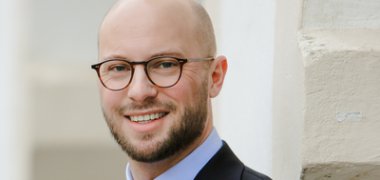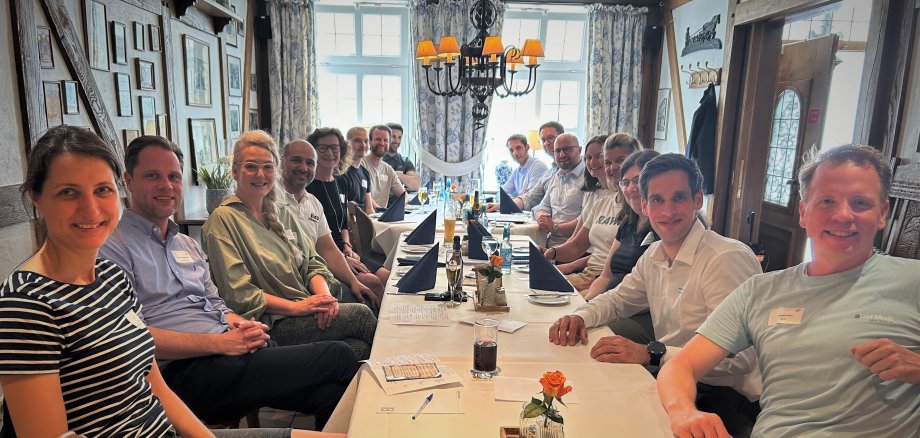Municipal budget
Afterwork meeting with the mayor
For the second time this year, company representatives met at the after-work event to network and exchange ideas in a relaxed atmosphere.
At the request of participants at the last meeting, Mayor Michael Gerdhenrich gave a presentation on the budget situation of the town of Beckum on Wednesday evening at Haus Samson. As in many other municipalities, the financial situation here is also tense.

This is primarily due to the wide range of tasks assigned to local authorities, which are often transferred to them without cost-covering funding. These include the provision of daycare and childcare places in open all-day care. Over 1,550 daycare places will be available and needed in Beckum from August 2024. Mayor Gerdhenrich emphasised that the expansion of childcare is sensible and necessary for various reasons, including to promote employment, equal opportunities, equality and integration as well as to enable pension entitlements to be built up. Nevertheless, the example of childcare impressively illustrates the structural underfunding of local authorities. In 2014, the city of Beckum's own contribution in this area was still around 3 million euros; by 2024, it will already be over 7.3 million euros. These cost developments affect many areas, for example the district levy, investment and maintenance costs as well as personnel expenses, which have risen significantly following the latest wage settlements. The new buildings for the fire station and the Sonnenschule are also absolutely necessary, unavoidable and ultimately have to be financed.
Following the short presentation, the participants discussed how the revenue side of the city of Beckum could be increased. One idea was to sell more commercial properties in order to attract businesses. "We are working on this," explained the mayor. However, this is not a short-term process. There is currently not enough land owned by the city of Beckum that could be used for this in the short term. Therefore, land would first have to be acquired and land reserves made available. However, this is not always easy because, naturally, not everyone wants to sell their land. In addition, there are agricultural pre-emption rights that make the acquisition of land much more difficult. Once the land has been acquired, the infrastructure for the expansion still has to be financed. According to the mayor, further commercial sites are important, particularly in order to offer established companies opportunities for expansion. However, it should be noted that the sale of commercial property alone does not generate any long-term income. The long-term benefit lies more in the income from trade tax. However, the interplay between tax strength and state allocations must be considered here. If tax revenue increases, the state allocations decrease.
"So you can see that municipal activities are much more strongly characterised by expenditure than is the case in companies. We don't produce, we don't sell products and we don't aim to make a profit. We provide services of general interest. Reducing expenditure therefore always means restricting municipal services. This needs to be carefully considered. Nevertheless, in financially challenging times, we must do our utmost to avoid further permanent tasks and burdens," explained the mayor.
This was followed by a shared meal and individual dialogue, which fortunately also led to new contacts being made.
The next date for the afterwork meeting will be in September and will be announced in good time.

